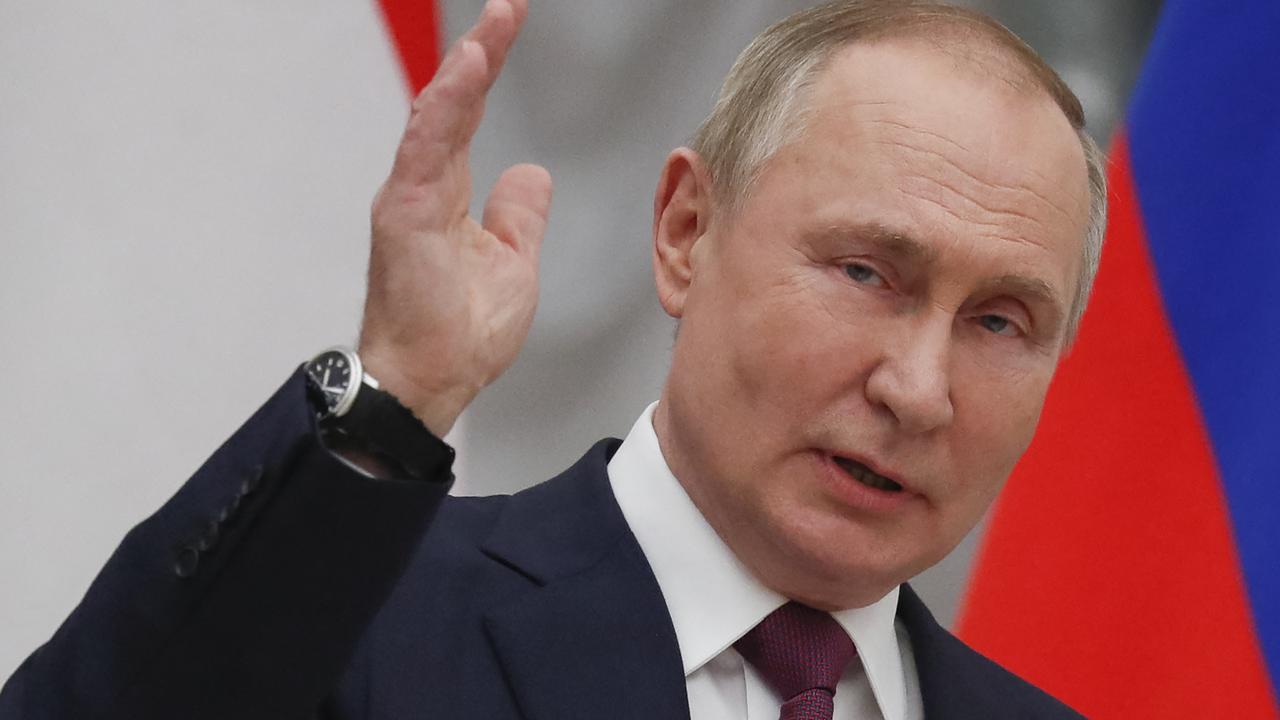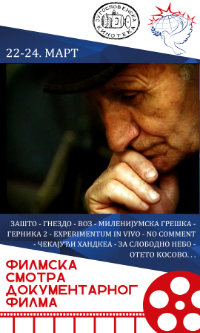Is Russia escaping the US/EU/NATO anvil?
| Activities - Comments |

Wolfgang Effenberger
After the G7 meeting organized on the sidelines of the Munich Security Conference, German Foreign Minister Annalena Baerbock made an urgent appeal to Russia, warning Putin not to attack Ukraine.
"A renewed violation of Ukraine's sovereignty would very quickly have massive repercussions for Russia - economically, financially and politically - strategically and also individually for all those who bear personal responsibility for this crisis."(1)
Baerbock received flanking support from EU Commission President Ursula von der Leyen: "If Vladimir Putin starts a war, we will respond with the most powerful lever we have: Economic and financial sanctions, because the economy is Russia's weak point." That could mean Russia's exclusion from the international banking communications network (Swift). This would effectively cut Russia off from international financial markets.(2) The conflict being played out on Ukraine's back is primarily about Russia's economic destruction. The elimination of Nordstream 2 is only a partial goal.
Russian demands for security guarantees from the U.S. and NATO have been on the table since mid-December 2021. Since then, the talks, which have been held at all levels and have been unsuccessful for Russia, have not ceased. Putin is being stalled on the issue and at the same time subjected to further verbal attacks and defamation.
Paul Craig Roberts, American economist and publicist and former high-ranking U.S. politician, wonders if Putin and Lavrov will ever realize "that there is no way at all to successfully negotiate with Washington on Russia's security concerns."(3) According to Roberts the reasons are obvious. For one, the U.S. military and security complex, which has an annual budget of $1,000 billion, needs an enemy to justify that expenditure.
The second reason Roberts sees in the influence of U.S. foreign policy under Zionist neoconservatives who hate Russia for historical reasons. When Putin announced the end of the U.S. "unipolar world" at the 2007 Munich Security Conference, he had finally made himself an enemy of the neoconservatives. Under defense policy expert Paul Wolfowitz, they had drafted a doctrine named after him that advocated preemptive military action to safeguard U.S. unilateralism, to suppress in advance any future potential threat to U.S. hegemony.(4) The overthrow of Ukraine's democratically elected government and the installation of a neo-Nazi regime subordinate to Washington can also be attributed to the neoconservatives. But the attempt to take over the Russian naval base in the Black Sea in Crimea failed when the population there voted overwhelmingly to join Russia. The Russians in the Donbass would have liked to follow suit, but Putin would not allow it. Thus, since 2014, the Donbass region has been a trouble spot, with people living there dying and suffering. The Western media have concealed from the public that the Kiev government has massed close to 125000 troops on the Grnez Line to the breakaway regions.
A diplomatic solution to the conflict envisaged in the Minsk Agreement of 2015 has always been undermined by Kiev.
Why didn't the West itself raise the possibility of genocidal recognition in the face of Ukraine's destructive behavior?
The blueprint is Kosovo, where the then German Chancellor Kohl was the second to recognize sovereignty under international law, thus making the US Bondsteel camp in Kosovo possible in the long term.
For the arsonists, however, such a trouble spot is ideally suited to further fuel the conflict.
On 21.2.2022 at 20:38 the breaking news ran on the Tagesschau that Putin in a TV address announced the recognition of the independence of the separatist republics in eastern Ukraine by his country and signed a decree to that effect. He said he would ask the Russian parliament to approve it.(5)
This could put an end to years of suffering for the people in the breakaway Donbass territories, as Ukrainian government forces will then no longer be able to attack them as they have in the past without risking a major war and thus the destruction of Ukraine.
Chinese Foreign Minister Wang Li expressed a few hours after Putin's surprise coup that the continuing escalation of tensions was related to the failure of the Ukrainian government to implement the Minsk agreements.
Baerbock arrogantly made clear that there were red lines in talks with Russia: "The basis of our coexistence, international law, our European treaties, they are not negotiable."(6)
Who has been breaking international law here in Europe for years? The coup orchestrated by the West in Kiev was a violation of international law, and the war of aggression against the rest of Yugoslavia in violation of international law was a war crime. Who today remembers how the "Western community of values" lied this war into existence? On March 15, 1999, in Rambouillet, the Serbs did not refuse to sign the draft treaty prepared by the Balkan Contact Group. They merely refused to sign a quickly added and non-negotiable annex, Part B, Article 8 of which ultimatively demanded: "NATO personnel, together with their vehicles, aircraft, and equipment, should be able to move freely and unimpeded, and without access restrictions, throughout the Federal Republic of Yugoslavia, including its airspace and territorial waters." On top of that, NATO should enjoy immunity in all legal proceedings, whether civil, administrative, or criminal."
The annex was concealed from the cabinet and parliament (and thus from the public) by German Foreign Minister Fischer. The then Finance Minister Lafontaine only learned about it much later from the press(7), as did the defense policy spokeswoman of the Greens, Angelika Beer, who then expressed: "If I had known, I would not have agreed to the war effort." Unfortunately, to this day the Greens are neither willing nor able to come to terms with their active support at the time for this war of aggression that violated international law.
Rudolf Augstein judged at that time: "The USA had set military conditions in Rambouillet that no Serb with a school education could have signed."(8)
In similarly war-hectic days as now witnessed during the Munich Security Conference, the U.S. Congress passed the "Silk Road Strategy Act" on March 19, 1999, in which America underlines its interests from the Mediterranean to Central Asia.
Former German Foreign Minister Hans-Dietrich Genscher wrote in the preface to Brzezinski's book "The Grand Chessboard": "If America wants to retain its position of world power in the future, it must turn all its attention to this area ["Eurasia"]. This is where 74 percent of the world's population lives, where most of the world's natural resources, including energy reserves, are located, and where 60 percent of the world's gross national product is generated. It is therefore in the area from Lisbon to Vladivostok that America's future destiny will be decided."(9)
Five days later, NATO opened the war against "Remnant Yugoslavia" with its air strikes. Preparations for this had been in full swing since the summer of 1998, although at that time the situation there was still stable.
Notwithstanding the daily air strikes in Remnant Yugoslavia, NATO members met in Washington on April 23 to celebrate the 50th anniversary of the founding of the Western "defense alliance." For the NATO to be expanded and the coming tasks in the 21st century, U.S. President Clinton presented the new strategic concept: Away from the pure defense alliance and toward crisis management in the Euro-Atlantic area, whereby NATO could act in the future "in a limited framework" without a UN mandate. Unambiguously, former Chancellor Helmut Schmidt stated at the end of the first week of the war: " Bullied by the U.S., we have disregarded international law and the United Nations Charter."(10) And U.S. political scientist and war researcher Professor Daniel Kolko wrote in the Berlin Tagesspiegel after the war in Yugoslavia: "For the U.S., it was about demonstrating military power and expanding its supremacy in NATO."(11) The war, forced with a lie, replaced international law with the "right of the powerful". Former NATO Deputy Supreme Allied Commander General (ret.) Gerd Schmückle summed up NATO's new intervention goals: "Ultimately, U.S. interests decide where to intervene. Everything revolves around economics. Where is there oil, where are the future sources of oil?"(12)
UN Resolution 1244 of June 10, 1999, provided the basis in international law for the establishment of the Interim Administration Mission. This established Kosovo's territorial affiliation with Serbia. Notwithstanding this, the West pressed ahead with Kosovo's independence and made its case before the International Court of Justice in The Hague on April 17, 2009. Even before the fifteen judges in The Hague could consider the independence request, U.S. Vice President Biden underscored the country's independence as irreversible during a visit to Kosovo in May 2009. It is hard to imagine a clearer disregard for a supreme court.(13)
Behind the usual platitudes of freedom and democracy were once again tangible economic and geopolitical interests. These were bluntly explained at the end of April 2000 at a U.S. State Department conference on the Balkans and NATO enlargement to the East in Bratislava. In his function as Vice-President of the OSCE Assembly, the CDU Member of the Bundestag Willy Wimmer was also invited, who was so alarmed that immediately after the conference he informed the acting SPD Chancellor Gerhard Schröder in a letter(14) about the true background of the Yugoslav war and the future geostrategic intentions of the U.S. - an extremely unusual event. Under pt. 7 and pt. 8 is stated there about the strategic intentions of the USA conveyed at a high-level conference:
"In the forthcoming NATO enlargement, the spatial situation between the Baltic Sea and Anatolia must be restored as it was in the heyday of Roman expansion. To this end, Poland must be surrounded to the north and south by democratic states as neighbors, Romania and Bulgaria must ensure the land connection to Turkey, Serbia (probably for the purpose of ensuring a U.S. military presence) must be permanently excluded from European development."(15)
This plan has been consistently implemented ever since. For example, the July 21, 2021 U.S.-Germany Joint Statement in Support of Ukraine strongly expresses support for the Three Seas Initiative (Baltic Sea-Black Sea-Adriatic Sea) and its efforts to strengthen infrastructure connectivity and energy security in Central and Eastern Europe.(16)
According to Christopher Clark, NATO put much more pressure on the Serbs in the spring of 1999 than Austria-Hungary did in July 1914. He asks, "Was this mainly because Russia was out of the picture as a major power?"(17) The wars and civil wars of the present (Iraq, Libya, Syria, Ukraine, Egypt, etc.) show that the trail of blood left by the strategists of the First World War extends to the present day and will not dry up until the driving forces that led Europe into the First World War are uncovered and the conflicts that have still not been resolved lead to a sustainable peace solution.
In the SPD's parliamentary group meeting at the end of January 2022, SPD co-leader Lars Klingbeil made a very clear statement to the Tagesschau about the Ukraine conflict: "The escalation is coming from Russia."(18) This statement applies not only to the SPD, but to the entire government. How can Annalena Baerbock call on Putin to engage in serious negotiations under these circumstances?(19) The leadership of the German republic seems to have dangerous deficits in historical knowledge or is not even aware of these deficits. Is it just stupidity and arrogance or do the ignorant politicians simply succumb to the siren songs of their transatlantic whisperers?
Notes
1) https://www.zeit.de/politik/ausland/2022-02/russland-wladimir-putin-annalena-baerbock-ostukraine?utm_referrer=https%3A%2F%2Fwww.google.com
2) https://www.tagesschau.de/ausland/vonderleyen-russland-sanktionen-101.html
3) https://uncutnews.ch/die-nato-ist-kein-verteidigungsbuendnis-mehr-sondern-ein-instrument-der-aggression/
4) Die Wolfowitz-Doktrin ist ein inoffizieller Name für die ursprüngliche Version der Defence Planning Guidance für die Geschäftsjahre 1994–99
5) https://www.tagesschau.de/eilmeldung/eilmeldung-6231.html
6) https://www.zeit.de/politik/ausland/2022-02/russland-wladimir-putin-annalena-baerbock-ostukraine?utm_referrer=https%3A%2F%2Fwww.google.com
7) Lafontaine, Oskar: Das Herz schlägt links, München 1999, S. 243
8) Ebd.
9) Brzezinski, Zbigniew: Die einzige Weltmacht Amerikas Strategie der Vorherrschaft, Frankfurt a.M. 2001, S. 10f.
10) Schmidt, Helmut, Frankfurter Rundschau, 3./4. April 1999
11) Kolko, Daniel: Tagesspiegel, 8. Mai 1999
12) Die Woche vom 1.4.1999
13) Wolfgang Effenberger: Schwarzbuch EU & NATO Warum die Welt keinen Frieden findet, Höhr-Grenzhausen 2020, S. 308
14) Präsident Bill Clinton vor der US-Gewerkschaft American Federation of State, County and Municipal Employes (AFSCME): “Remarks to AFSCME Biennial Conventions, Washington, D.C. 23. März 1999.
15) Abdruck in Effenberger, Wolfgang/Wimmer, Willy: Wiederkehr der Hasardeure – Schattenstrategen, Kriegstreiber, stille Profiteure 1914 und heute, Höhr-Grenzhausen 2014, S. 547; siehe auch Willy Wimmer: Die Akte Moskau, Höhr-Grenzhausen 2016.
16) https://www.auswaertiges-amt.de/de/newsroom/gemeinsame-erklaerung-usa-und-deutschland/2472074
17) Kilb, Andreas: „Alle diese Staaten waren Bösewichte“, 29. September 2013, Kilb im Gespräch mit Christopher Clark in „Aktuell Feulleton“ der FAZ.
18) https://www.tagesschau.de/inland/innenpolitik/spd-klingbeil-russland-103.html
19) https://www.zeit.de/politik/ausland/2022-02/russland-wladimir-putin-annalena-baerbock-ostukraine?utm_referrer=https%3A%2F%2Fwww.google.com
| < Prev | Next > |
|---|
| Overstatement from Davos 2017. |
Liberal corporative capitalism, for reasons of lowering traveling costs, proposed not to travel to history alone but packed togather with NATO, EU and unipollar World Order. Workers participation has good chances to step in provisionally, buying time for full scale workers selfmanagment. |









